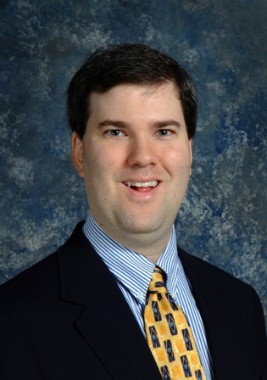User login
The Centers for Medicare and Medicaid Services is revisiting the National Coverage Determination for ventricular assist devices.
CMS is seeking public comment on the clinical evidence supporting identification of patients whose outcomes would improve with ventricular assist device (VAD) placement, health care teams, and hospital standards that would optimize patient outcomes, including evidence to support the current requirement for certification of hospitals implanting VADs for destination therapy.
CMS added that it is particularly interested in comments that include clinical studies and other scientific information that provides evidence for improvement in short-and long-erm outcomes with VADs.
"My own personal opinion is that it’s a good thing that they’ve reopened the NCD," said Dr. Lee Goldberg, medical director of the heart failure and transplantation program at the University of Pennsylvania, Philadelphia.
"For one, the technology has really changed, the experience of the centers and physicians have changed over time ... and the criteria to certify various centers and surgeons involved is somewhat archaic and arbitrary, so tightening that up in the context of updating evidence and approach makes sense." The challenge, he added, is that there’s not enough clinical data to answer all of the CMS questions and inquiries.
The NCD reopening, announced on Feb. 7, follows a Medicare advisory group meeting in November that aimed to review the available evidence on the management of heart failure using VADs, including the value of VAD-specific certification for various facilities, and patient selection and outcomes.
During the Medicare Advisory (MEDCAC) meeting, heart societies and prominent heart failure experts discussed the state of VAD research. The panel stressed the importance of multidisciplinary heart teams and said that there’s not enough data to show that the indications for VADs can be expanded to include lower-risk patients.
Dr. Sean Pinney, who spoke at the MEDCAC meeting on behalf of the Heart Failure Society of America, said that the society supported the NCD and did "not endorse any change in the current patient selection criteria which derive from prospective randomized trials." He added that there’s a need for more well-controlled clinical trials, including those that would examine "less sick" patients.
CMS will accept comments for 30 days on the reopened NCD, and various entities, including the American College of Cardiology, are expected to submit comments. "We want to make sure that we’re putting forth things that are most important to impact CMS decision making," said Dr. Goldberg, chair of the ACC’s heart failure and transplant council. "For instance, the appropriate certification of hospitals, appropriate utilization of a heart care team. ... Also, currently we know transplant is superior to VAD therapy for long-term survival and therefore we want to ensure that patients do have access to transplant evaluation."
The CMS review includes VADs used for bridge-to-transplant and as destination therapy. It does not include devices that are used for temporary, in-hospital use.
The reconsideration was requested by Det Norske Veritas Healthcare Inc. (DNV) to include the DNV mechanical circulatory support certification program as an acceptable credential for facilities that qualify for Medicare reimbursement.
The 140 U.S. centers that place LVADs were expected to implant nearly 3,000 devices in 2012. Nearly 4,600 patients have received an LVAD since 2010.
"I personally think that they’re going to try and tighten up [the requirements] a little bit," said Dr. Goldberg. "And try to understand who’s too sick, and where’s the appropriate cut-off, and to try and maximize or improve long-term outcomes for VAD patients. Whether they’ll be able to come up with something that’s better than what we have, I don’t know." It’s too soon to tell whether the NCD reconsideration will have an impact on procedure volumes, he added.
Dr. Goldberg and Dr. Pinney had no relevant disclosures.
On Twitter @NaseemSMiller
The Centers for Medicare and Medicaid Services is revisiting the National Coverage Determination for ventricular assist devices.
CMS is seeking public comment on the clinical evidence supporting identification of patients whose outcomes would improve with ventricular assist device (VAD) placement, health care teams, and hospital standards that would optimize patient outcomes, including evidence to support the current requirement for certification of hospitals implanting VADs for destination therapy.
CMS added that it is particularly interested in comments that include clinical studies and other scientific information that provides evidence for improvement in short-and long-erm outcomes with VADs.
"My own personal opinion is that it’s a good thing that they’ve reopened the NCD," said Dr. Lee Goldberg, medical director of the heart failure and transplantation program at the University of Pennsylvania, Philadelphia.
"For one, the technology has really changed, the experience of the centers and physicians have changed over time ... and the criteria to certify various centers and surgeons involved is somewhat archaic and arbitrary, so tightening that up in the context of updating evidence and approach makes sense." The challenge, he added, is that there’s not enough clinical data to answer all of the CMS questions and inquiries.
The NCD reopening, announced on Feb. 7, follows a Medicare advisory group meeting in November that aimed to review the available evidence on the management of heart failure using VADs, including the value of VAD-specific certification for various facilities, and patient selection and outcomes.
During the Medicare Advisory (MEDCAC) meeting, heart societies and prominent heart failure experts discussed the state of VAD research. The panel stressed the importance of multidisciplinary heart teams and said that there’s not enough data to show that the indications for VADs can be expanded to include lower-risk patients.
Dr. Sean Pinney, who spoke at the MEDCAC meeting on behalf of the Heart Failure Society of America, said that the society supported the NCD and did "not endorse any change in the current patient selection criteria which derive from prospective randomized trials." He added that there’s a need for more well-controlled clinical trials, including those that would examine "less sick" patients.
CMS will accept comments for 30 days on the reopened NCD, and various entities, including the American College of Cardiology, are expected to submit comments. "We want to make sure that we’re putting forth things that are most important to impact CMS decision making," said Dr. Goldberg, chair of the ACC’s heart failure and transplant council. "For instance, the appropriate certification of hospitals, appropriate utilization of a heart care team. ... Also, currently we know transplant is superior to VAD therapy for long-term survival and therefore we want to ensure that patients do have access to transplant evaluation."
The CMS review includes VADs used for bridge-to-transplant and as destination therapy. It does not include devices that are used for temporary, in-hospital use.
The reconsideration was requested by Det Norske Veritas Healthcare Inc. (DNV) to include the DNV mechanical circulatory support certification program as an acceptable credential for facilities that qualify for Medicare reimbursement.
The 140 U.S. centers that place LVADs were expected to implant nearly 3,000 devices in 2012. Nearly 4,600 patients have received an LVAD since 2010.
"I personally think that they’re going to try and tighten up [the requirements] a little bit," said Dr. Goldberg. "And try to understand who’s too sick, and where’s the appropriate cut-off, and to try and maximize or improve long-term outcomes for VAD patients. Whether they’ll be able to come up with something that’s better than what we have, I don’t know." It’s too soon to tell whether the NCD reconsideration will have an impact on procedure volumes, he added.
Dr. Goldberg and Dr. Pinney had no relevant disclosures.
On Twitter @NaseemSMiller
The Centers for Medicare and Medicaid Services is revisiting the National Coverage Determination for ventricular assist devices.
CMS is seeking public comment on the clinical evidence supporting identification of patients whose outcomes would improve with ventricular assist device (VAD) placement, health care teams, and hospital standards that would optimize patient outcomes, including evidence to support the current requirement for certification of hospitals implanting VADs for destination therapy.
CMS added that it is particularly interested in comments that include clinical studies and other scientific information that provides evidence for improvement in short-and long-erm outcomes with VADs.
"My own personal opinion is that it’s a good thing that they’ve reopened the NCD," said Dr. Lee Goldberg, medical director of the heart failure and transplantation program at the University of Pennsylvania, Philadelphia.
"For one, the technology has really changed, the experience of the centers and physicians have changed over time ... and the criteria to certify various centers and surgeons involved is somewhat archaic and arbitrary, so tightening that up in the context of updating evidence and approach makes sense." The challenge, he added, is that there’s not enough clinical data to answer all of the CMS questions and inquiries.
The NCD reopening, announced on Feb. 7, follows a Medicare advisory group meeting in November that aimed to review the available evidence on the management of heart failure using VADs, including the value of VAD-specific certification for various facilities, and patient selection and outcomes.
During the Medicare Advisory (MEDCAC) meeting, heart societies and prominent heart failure experts discussed the state of VAD research. The panel stressed the importance of multidisciplinary heart teams and said that there’s not enough data to show that the indications for VADs can be expanded to include lower-risk patients.
Dr. Sean Pinney, who spoke at the MEDCAC meeting on behalf of the Heart Failure Society of America, said that the society supported the NCD and did "not endorse any change in the current patient selection criteria which derive from prospective randomized trials." He added that there’s a need for more well-controlled clinical trials, including those that would examine "less sick" patients.
CMS will accept comments for 30 days on the reopened NCD, and various entities, including the American College of Cardiology, are expected to submit comments. "We want to make sure that we’re putting forth things that are most important to impact CMS decision making," said Dr. Goldberg, chair of the ACC’s heart failure and transplant council. "For instance, the appropriate certification of hospitals, appropriate utilization of a heart care team. ... Also, currently we know transplant is superior to VAD therapy for long-term survival and therefore we want to ensure that patients do have access to transplant evaluation."
The CMS review includes VADs used for bridge-to-transplant and as destination therapy. It does not include devices that are used for temporary, in-hospital use.
The reconsideration was requested by Det Norske Veritas Healthcare Inc. (DNV) to include the DNV mechanical circulatory support certification program as an acceptable credential for facilities that qualify for Medicare reimbursement.
The 140 U.S. centers that place LVADs were expected to implant nearly 3,000 devices in 2012. Nearly 4,600 patients have received an LVAD since 2010.
"I personally think that they’re going to try and tighten up [the requirements] a little bit," said Dr. Goldberg. "And try to understand who’s too sick, and where’s the appropriate cut-off, and to try and maximize or improve long-term outcomes for VAD patients. Whether they’ll be able to come up with something that’s better than what we have, I don’t know." It’s too soon to tell whether the NCD reconsideration will have an impact on procedure volumes, he added.
Dr. Goldberg and Dr. Pinney had no relevant disclosures.
On Twitter @NaseemSMiller

